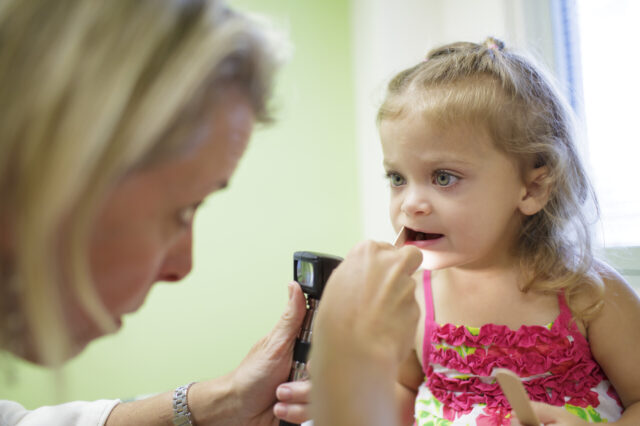New Medicaid policy increases the rate of children receiving vital oral health care in Texas and Florida

Children on Medicaid and their parents may have a reason to smile more: A study by University of Florida researchers shows that a Medicaid policy change in Florida and Texas that reimburses pediatricians and other medical primary care providers for basic oral health screenings and cavity prevention has increased the likelihood of children receiving these essential services by 20 and 25 percent, respectively.
This is particularly notable because Florida ranks 50th in the nation in dental care rates among children enrolled in Medicaid, while Texas is among the best, with the third highest rate in the U.S. The fact that the policy is effective at both ends of the spectrum is important, because untreated tooth decay occurs in 25 percent of children living in poverty and can lead to pain, difficulty eating, serious infections, missed school days, emergency room visits, hospitalizations and, in rare instances, death.
“Given the high stakes for untreated tooth decay on children’s overall health and well-being, especially among vulnerable and low-income children, it is important to identify effective policies to tackle this prevalent problem,” said Jill Boylston Herndon, Ph.D., an associate professor in the department of health outcomes and policy in the University of Florida’s College of Medicine and the lead researcher on this project, which was funded by the National Institutes of Health. “Particularly among very young children, medical primary care providers serve as the gateway to the health care system and can play an important role in preventing tooth decay and facilitating the establishment of a dental home.”
Only 31 percent of publicly insured children under age 5 receive dental services. Even though comprehensive dental benefits are required in Medicaid, it is much more likely that preschool-aged children enrolled in Medicaid will receive medical care than dental care. Therefore, 46 state Medicaid programs have enacted policies to reimburse medical primary care providers for administering early childhood tooth decay preventive services since 2000. These services may include topical fluoride application, parental counseling, mouth exams and an overall assessment for risk of tooth decay. The policy in Florida, which covers children ages 6 months to 42 months, was implemented on April 15, 2008 and reimburses providers $27 for these services. The policy in Texas, which covers children ages 6 months to 35 months, was implemented on Sept. 1, 2008 and reimburses providers $34.16 for these services. Topical fluoride application, combined with parental counseling, has been shown to reduce tooth decay by up to 50 percent in high-risk children.
“We are fully committed to increasing the number of Medicaid-enrolled children who receive preventive dental services,” said Beth Kidder, assistant deputy secretary for Medicaid Operations at the Florida Agency for Health Care Administration in Tallahassee. “We are pleased that our policy change is expanding good oral health care to more children.”
The researchers examined reimbursement data on more than 1 million children in Florida and almost 2.1 million children in Texas, for a total sample size of more than 3.1 million. In total, there was a 130 percent increase in services, such as oral health screenings and topical fluoride applications, for children 6 months to 42 months in Florida and a 94 percent increase for children 6 months to 35 months in Texas. Even after controlling for factors that could influence the findings, such as age and length of Medicaid enrollment, the children covered under the new policy were 20 percent more likely in Florida and 25 percent more likely in Texas to receive oral health preventive services than before the policy was enacted when compared with another group of children who were too old to be covered under this specific policy.
This analysis, which was published in the journal Health Services Research in July, has far-reaching public health implications given that Medicaid covers more than one-third of all children in the U.S. Led by Herndon, the multidisciplinary team that completed the analysis included W. Bruce Vogel, Ph.D., and Elizabeth A. Shenkman, Ph.D., of the department of health outcomes and policy in the UF College of Medicine, as well as Scott L. Tomar, D.M.D., DrPH, and Frank Catalanotto, D.M.D., of the department of community dentistry and behavioral science in the UF College of Dentistry.
“As primary care providers, we are the medical home base for parents and children, so providing oral health services should be prioritized. Now, with reimbursement, they are,” said Lindsay Thompson, M.D., the associate director of clinical research for the Institute for Child Health Policy and a UF Health pediatrician who has provided oral health services to children since 2006. “These oral health services are not difficult to administer and they can have such a profound effect — not only on the children’s oral and overall health but also on convincing parents of the importance of oral care.”